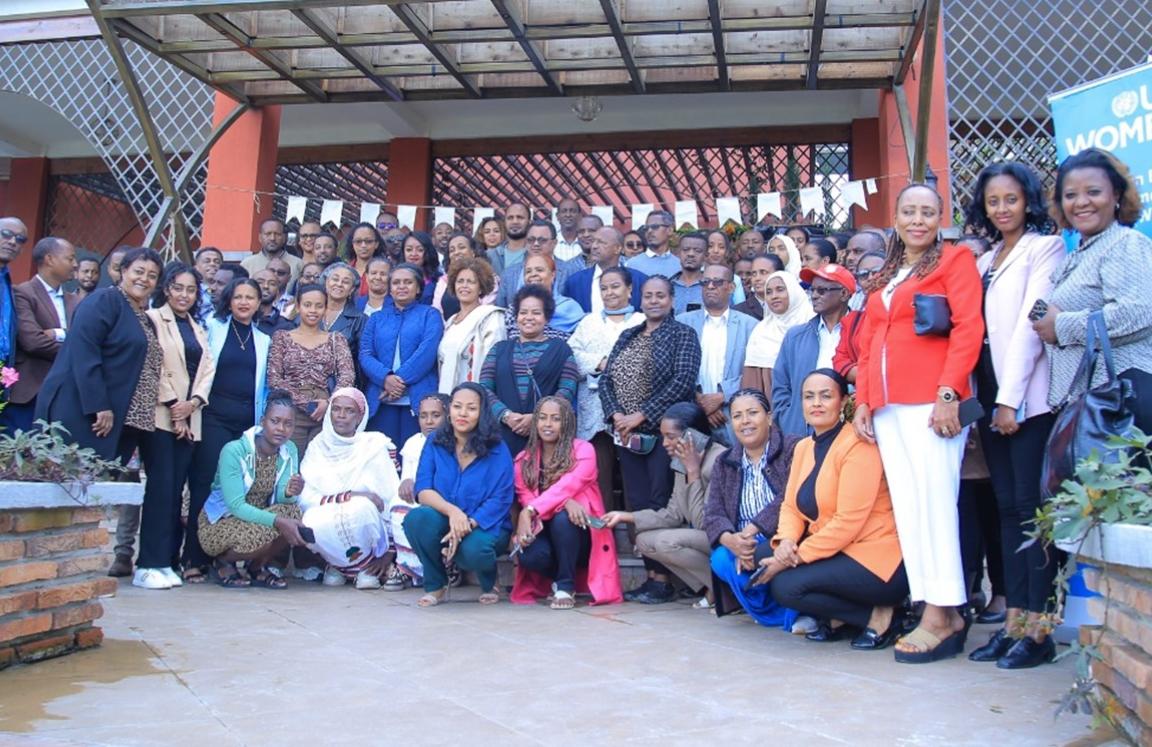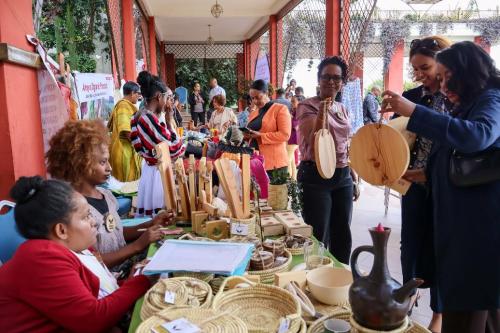
Economic Empowerment
The National Women Economic Empowerment Forum (NWEEF) is a Forum that came into reality in April 2022 with the main objective to promote the economic empowerment of women in a coordinated and integrated manner and to contribute to the realization of the equal rights of women to accelerating economic growth and development pioneered by UN Women, the Ministry of Women and Social Affairs (MOWSA), ActionAid Ethiopia (AAE), Ministry of labor and Skills, Ethiopian Chamber of Commerce and Sectoral Associations, and have pioneered. Since its establishment annual forums had been held and this year, the 3rd NWEEF was hosted by ActionAid Ethiopia in collaboration with MOWSA and UN Women under this year IWD theme of “inspire inclusion” from August 27- 28, 2024.
In the event more than 100 stakeholders from regional bureaus of women and social affairs; WEE actors, policy actors, community representatives, CSOs, sector office representatives, financial institutions, associations and private sectors took part. The event started by welcome remarks by ActionAid Ethiopia Country Director (Tinebeb Berhane), UN Women WEE Program Analyst (Simegn Kuma), and opening speech by Seleshi Tadesse (MOWSA) delegate to the state minister and Executive of Women Right Protection and Response.
Ato Seleshi, MOWSA, providing opening speech at the start of the event
After the opening, there was a presentation on achievements by the Forum by Getachew Kassie (MOWSA). In line with the theme, relevant sessions on inclusion including but not limited to hearing the voices of marginalized; presentations on GRB as a tool to promoting inclusive development; status of public procurement in including women and financial institutions’ programs and efforts towards inclusive packages were the highlights of this year’s forum towards drawing actions for continuous follow up. Additionally, the agenda of women only SACCOs was raised to assess any progress made towards having the regulation approved.
The next agenda was a panel discussion by women in small business/organized in SACCOs by AAE from Elfeta (Oromia Region) and Semen Bench (Southwest Region) LRPs including those from marginalized communities. The vibrant women boldly shared their success stories from being supported to organize on their own to meaningfully benefit from the profits in changing theirs and their family lives, making decisions and exercising leadership. The forum had been an advocacy space for the women cooperatives and allies to further promote the agenda of women only SACCOs as per the discretion of the women. An expert from the National Cooperatives Commission also presented the progress made. Although the directive couldn’t still be adopted a guideline had been recently prepared to facilitate for women and persons with disabilities to organize by themselves.
For more on the story please click on the link below:
